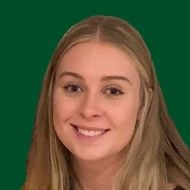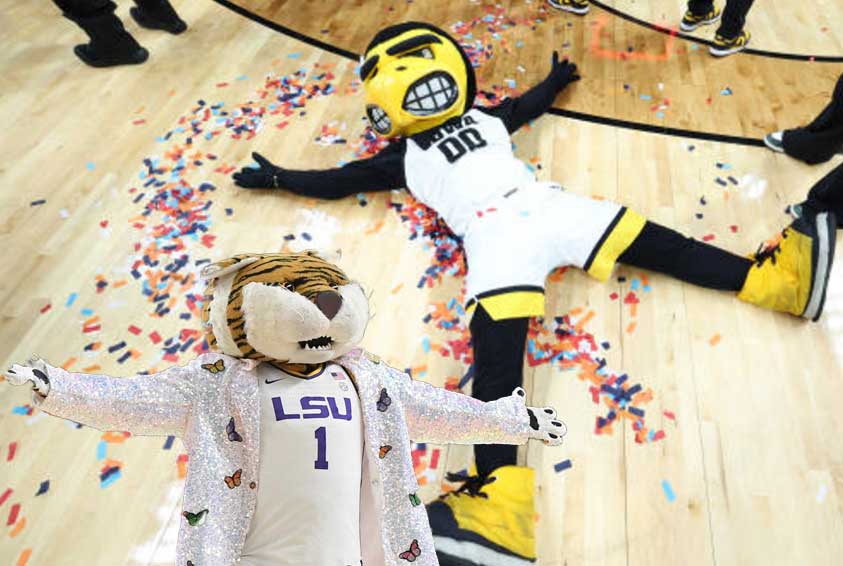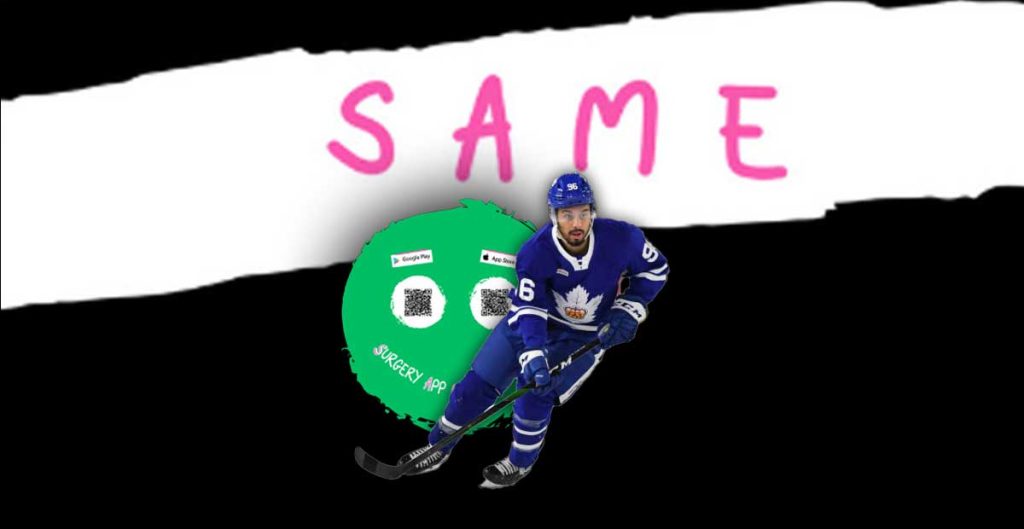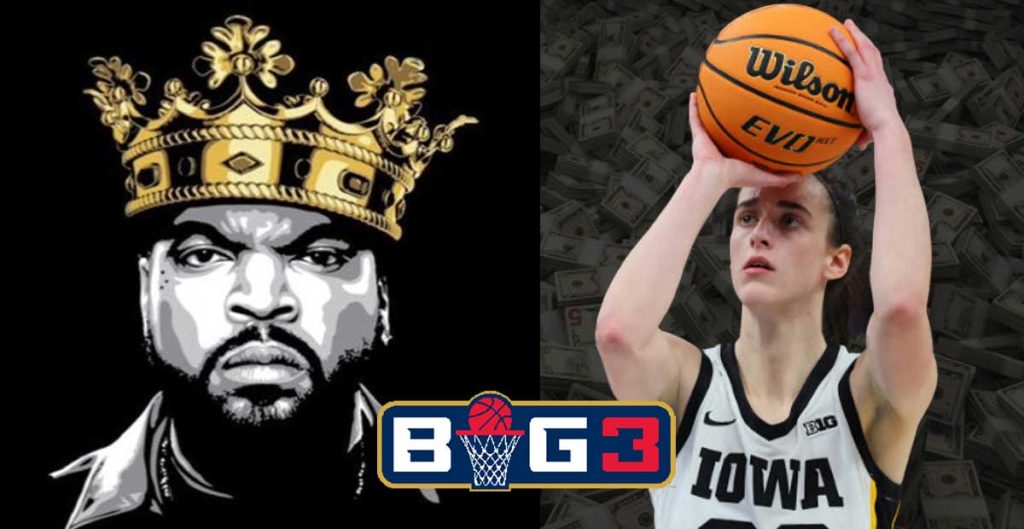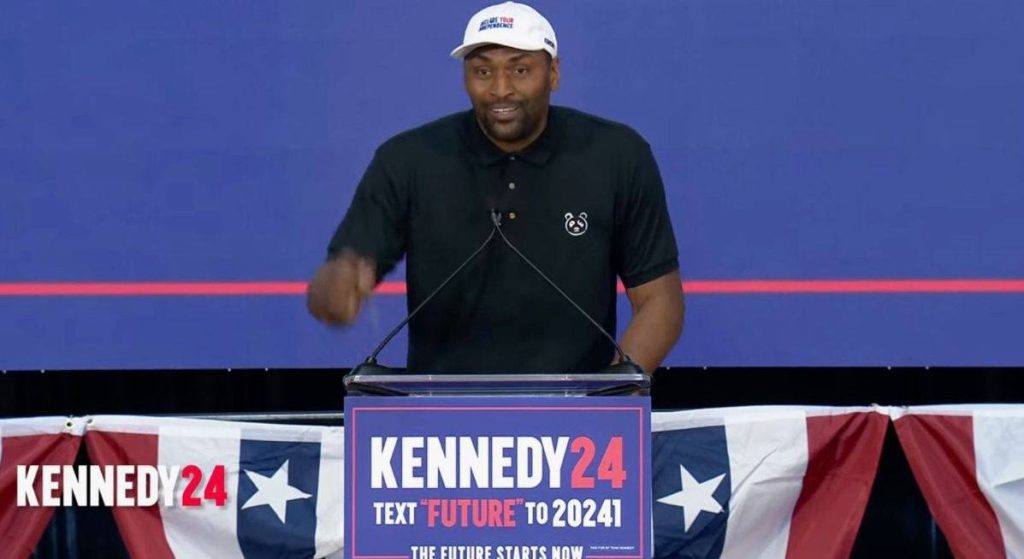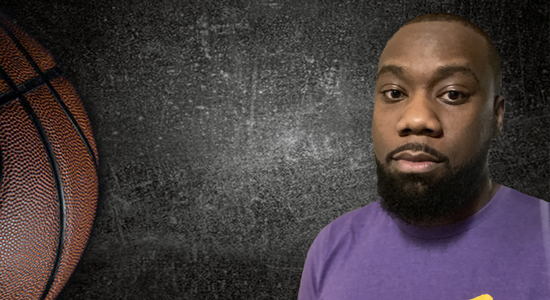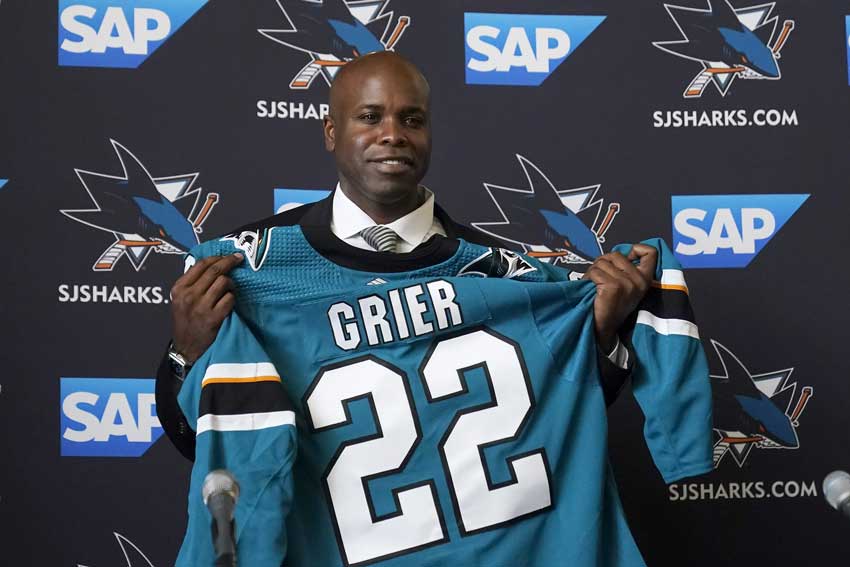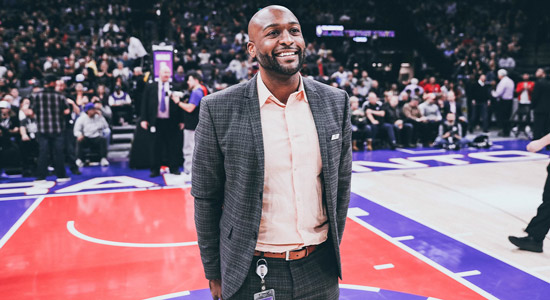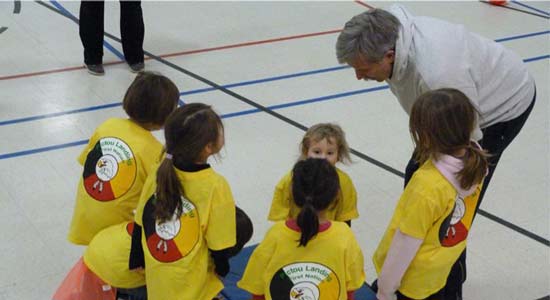
1 on 1 with Tom Fahie | Youth Development Coordinator | Special Olympics Nova Scotia

When I first started my teaching career, my goal was to impart the skills necessary to enjoy sport and show that activity is especially important if we all wanted to live a long, healthy, enjoyable life. I soon realized that my role was so much more important than that.
Tom Fahie
Youth Development Coordinator
Special Olympics Nova Scotia
The Latest
Jontay Porter Banned From The NBA For Life
Iowa vs LSU: A Landmark Moment in Women’s College Basketball
Former NHLer Josh Ho-Sang Now A Rapper
Metta World Peace Endorses RFK Jr. for President 2024
1Tell us about your role as Youth Development Coordinator for Special Olympics Nova Scotia.
I started at Special Olympics 10 years ago, when I retired from being a physical education teacher and Executive Director of the Nova Scotia School Athletic Federation.
My post-retirement role was to develop the Special Olympics Canada Youth programs called Active Start and FUNdamentals, which encompassed ages 2-12. These programs help to develop fundamental movement and sport skills for children with an intellectual disability (ID).
The initial program focused on community engagement of families in our 15 regions in NS. There were three programs at the time and now there are 22 spread throughout the province.
I have since expanded the program to 230 schools in the province by providing resources, equipment and training to each School Board.
In the past two years, my focus has been to establish our MultiSport program in middle and high schools. This program uses the Sport for Life Learn to Train module and allows students with an ID to work with neuro-typical students to help with the introduction of the sports offered by Special Olympics Nova Scotia.
Additionally, I am the Coordinator of the program SO Healthy Athletes. This initiative screens our athletes for health concerns by offering these five health assessments: Healthy Hearing, Opening Eyes, Fun Fitness, Fit Feet and Special Smiles. These programs are free and help detect health issues that the athletes may experience.
A What does a typical day look like for you?
In the pre-covid times, a typical day would be at the office developing strategies for the above programs and trying to expand our reach. I would also visit selected areas to train new volunteers, add to the program equipment inventory and meet with local schools concerning the adoption of MultiSport.
This training is very important if we want to have quality volunteers delivering outstanding leadership. The course we offer is a 4-hour session on how to work with children with an ID and I have also delivered this training to recreation departments, physical education teachers, early childhood educators (ECE) and university students.
In total, I have trained over 500 volunteers.
I am currently a Master Coach Developer with NCCP which allows me to Train the Trainers in our province.
I also volunteer as a Leader with our program in Dartmouth, NS, in order to keep me in touch with the parents and children I serve. There I can see the direct impact our programs have with the children and plan accordingly.
Although each program differs, the aims and objectives are met.
In the post-Covid world, delivery of training and types of interactions will all change. I find myself involved in developing resources that can be used by all professionals working with children with an ID.
One such program is called PlayBuilder, an online resource for coaches, recreation leaders and health organizations that need adapted lessons and activities for our population.
I take mainstream warmups, drills and games and add modifications for the major IDs such as Down Syndrome and Autism.
I also am working on developing an online version of our Coaching Young Athletes course. This will allow volunteers and partners to have the option of in-person or online training, allowing the choice of formats for group work.
This option will also save money in the long term as travel costs and presenter’s fees are waived, helping Special Olympics remain fiscally responsible.
The third initiative I’m currently working on is a training program for leaders of Before and Afterschool programming (BAP) for the Department of Education and Early Childhood Development and Department of Communities, Culture and Heritage.
As schools expand their roles to include daycare, ECE leaders need a background in child development, play principles, adapting lessons for disabilities and knowledge of fundamental movement skills in relation to the acquisition of Physical Literacy (PL). This will be rolled out in the fall.
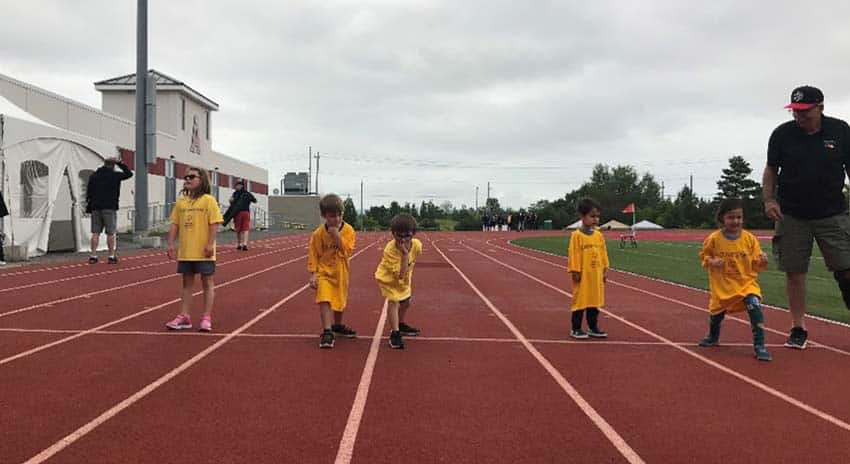
2I know you were a Physical and Health Education teacher for 30 years…congratulations! Tell us about the importance of teaching kids good values in sport. How were you able to translate that experience from teaching to working for Special Olympics Nova Scotia?
When I first started my teaching career, my goal was to impart the skills necessary to enjoy sport and show that activity is especially important if we all wanted to live a long, healthy, enjoyable life. I soon realized that my role was so much more important than that.
I became a mentor, coach, role model, friend, advocate, health advisor, colleague, liaison, administrator, defender of youth rights and inclusion promoter.
As we all grow, we take what society gives us and try to adapt it to our situations given the social context at the time.
In 1975, when I first started, ParticipACTION told us we weren’t as fit as the “60-year-old Swede”. The fitness boom started and we had to adapt our way of teaching from skill-based to fitness-based programming.
Now it is all about age and stage curriculum and Physical Literacy. This is a great step forward as we are now teaching to the whole curve and not just the middle.
3When was the point you realized that you were meant to do this career? Take us through that realization. If you can’t pinpoint the exact realization, tell us why you wanted a career in sport.
In grade seven, our school gym was replaced by four classrooms and we didn’t get one back until my grade 9 year. The PE teacher we had at the time exposed me to sport and although I had played tennis and hockey in my younger days, he introduced us to many activities.
It was during that year that I decided to become a PE teacher.
In Grade 10, another PE teacher did the same thing and I started playing volleyball, basketball and badminton for St. Patrick’s High. At Dalhousie University, I was recruited to play basketball and volleyball but chose basketball. A health condition kept me from participating after two years so I coached the JV basketball team at Dal.
After university, I played and coached many teams in my career. I picked up field hockey and made it to the Nationals. I continued playing basketball, volleyball and badminton as well as sports such as rock climbing, surfing, kayaking, golf, biking, hiking, canoeing, caving and rappelling. I coached 9 sports and over 130 teams.
As far as sport heroes are concerned, I would say Larry Bird, Michael Jordan, Tiger woods and Jean Beliveau.
4What are some of the biggest challenges that you face not only in your role but at Special Olympics Nova Scotia?
As far as Special Olympics is concerned, the biggest challenge is getting the word out to our population of children with an ID.
We have some great partners such as Autism NS, IWK Children’s Hospital and various government agencies but most of our growth comes from word of mouth.
Most people are aware of Special Olympics but they don’t know we have a full slate of youth programming dedicated and specifically designed to increase Physical Literacy in both sport and everyday activities.
We are fully on social media and we get very good coverage from CTV, but growth is still a challenge.
A What were the most rewarding aspects of your job as a teacher and now at Special Olympics?
As a teacher, I would say it was a pleasure to coach so many fine individuals over the years. Success and failure are a by-product of the relationship coaches have with their athletes, and if one can say they were a part of the students’ lives over a career and know they have made a difference then they have done their jobs.
The keys to success in coaching are being prepared, making it fun each day, striving to increase your knowledge base in the sport, and valuing your team. Nothing is more satisfying to run into a former student and hear how you made a difference in their life.
For Special Olympics, I find it exciting to create programs and opportunities for youth up to 21. Creating relationships in the sector has been both beneficial and rewarding. As a Healthy Athletes coordinator, seeing athletes get the care they need and volunteers getting training in working with them is a wonderful addition to working with youth.
There is a story of a track athlete in the U.S. who was always coming in second in her races. She was given an eye screening and a new pair of glasses for free. When she tried them on she said, “Now I won’t have to follow someone to the finish line!”
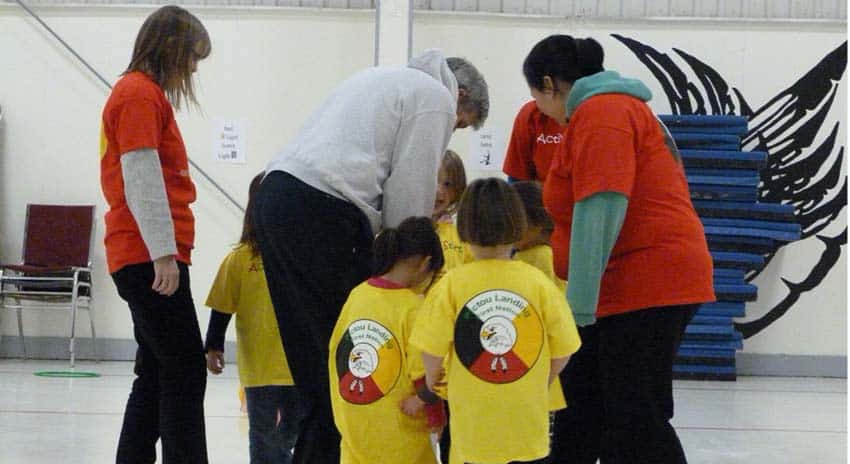
5What surprised you the most about starting a career in the sport?
There weren’t many surprises except when it came to being the ED of school sport in Nova Scotia. So much time is spent in trying to keep schools and parents from bending rules and students from acting poorly.
In the end, all anybody wants from sport and teaching is fairness and consistency. Problems arise when sport seems to favour individuals, groups and organizations.
What is refreshing about Special Olympic sport is that it is truly sport the way it was intended. Athletes, coaches, parents and administrators are focused on one thing – for each athlete to have the best experience they can.
Even the athletes are not wrapped up in competitiveness just for personal glory. They love what they do and it shows!
6What would you include on a list of your top 5 – 7 biggest career accomplishments or moments?
- Teaching for 30 years
- Being ED of School Sport
- Watching my daughters play sports
- My coaching career
- Work with Special Olympics
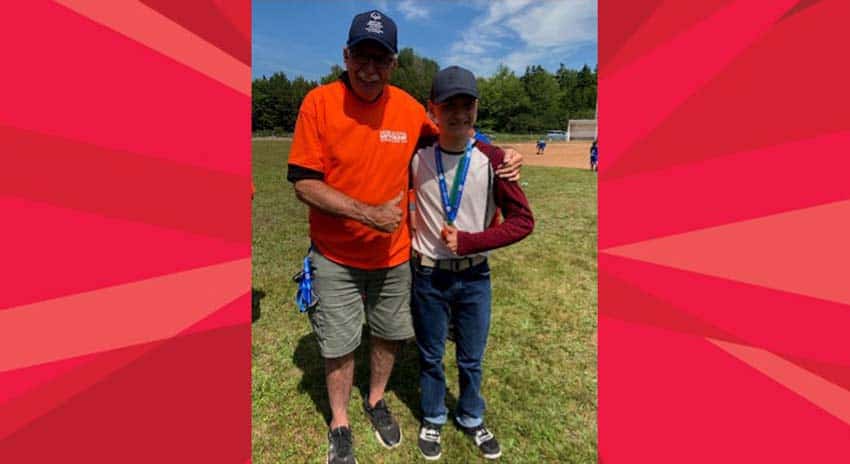
[get_current_post_author_pic_and_name]
Tom Fahie, Youth Development Coordinator for Special Olympics Nova Scotia, is a very passionate individual that has had an amazing career in sport. It is clear that he is a driving force behind expanding youth-focused sports programs, given his role with Special Olympics Nova Scotia and his experiences acting as a Phys. Ed. teacher and the Executive Director of school sport in Nova Scotia. Tom has had a tremendous impact on youth sport programming in the province, and he has expanded various initiatives such as Active Start and FUNdamentals to over 200 schools in Nova Scotia. He has a true love for what he does in sport, and it is inspiring for any professional involved in the industry to see!

